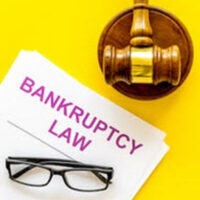What Types Of Debts Will Not Get Discharged In Bankruptcy?

When you are planning to file for bankruptcy, it is critical to have a clear understanding of what types of debts can be discharged in your bankruptcy case, and what types of debts will not be eligible for discharge. It is also essential to know that there is a distinction between types of debts that may be difficult (but not impossible) to discharge in a bankruptcy case, and those that are simply non-dischargeable under U.S. bankruptcy law. Our experienced West Palm Beach bankruptcy attorneys can provide you with more information about debts that cannot be discharged, and the distinction between debts that may be more difficult or complicated to have discharged in your bankruptcy case.
Debts That Are Not Eligible for Discharge
First, we want to be clear that there are some types of debts that are ineligible for discharge under the U.S. Bankruptcy Code, or “exceptions to discharge.” These are debts that cannot be discharged in a bankruptcy case, no matter how carefully the bankruptcy case is handled and no matter how much evidence you have to show that you cannot repay the debts and that it would create an undue hardship for you to continue attempting to repay them. Some of the most common types of debt that fit into this category of non-dischargeable debt include but are not limited to:
- Debts you owe for alimony, child support, or other types of family support;
- Tax debt that is less than three years old, tax debt for which you did not file a tax return, tax debt linked to fraud or tax evasion, and certain other types of tax debt (to be clear, some tax debts can be discharged in a bankruptcy case);
- Debts you have not included in your bankruptcy petition;
- Government fines or penalties you owe;
- Payments you are required to make as restitution for a crime or as damage from a DUI case; and
- Debts you owe as a result of fraud.
Debts That Can Be Difficult to Discharge
You may notice that many people described student loan debt as “non-dischargeable.” It is important to be clear that student loan debts are not, expressly, non-dischargeable as a type of debt. Rather, in order for student loan debts to be discharged, you will need to prove an undue hardship. You should also know that there is a new approach for handling student loan debt in bankruptcy cases, which is designed to make it easier for debtors to have their student loan debt discharged.
Contact a Bankruptcy Attorney in West Palm Beach
Do you have questions about discharge in bankruptcy, or whether your specific debts are eligible for discharge? This is a key question for anyone considering a personal bankruptcy case, and it is critical to get in touch with a lawyer who can help. An experienced West Palm Beach bankruptcy attorney at Kelley Kaplan & Eller can assess your circumstances today and can provide you with more information concerning the dischargeability of your debts. Do not hesitate to get in touch with our firm to find out more about how we can assist you.
Sources:
uscourts.gov/services-forms/bankruptcy/bankruptcy-basics/discharge-bankruptcy-bankruptcy-basics#:~:text=The%20discharge%20constitutes%20a%20permanent,for%20violating%20the%20discharge%20injunction
law.cornell.edu/uscode/text/11/727



